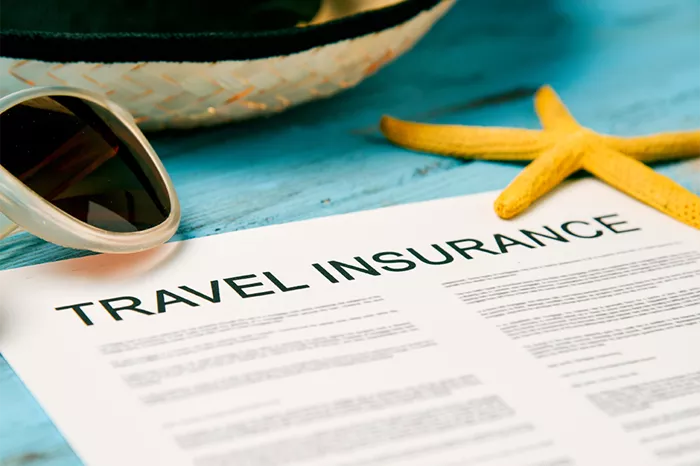When seeking mobile home insurance, one of the primary concerns for homeowners is finding affordable coverage that meets their needs. Identifying who has the cheapest mobile home insurance can help you save money while ensuring your home is protected against potential risks. This article delves into the factors influencing mobile home insurance costs, compares various insurance providers, and offers practical tips to help you secure the most affordable coverage available. By understanding these aspects, you can make an informed decision and find the best insurance solution for your mobile home.
Factors Influencing Mobile Home Insurance Costs
Understanding the factors that influence mobile home insurance costs is crucial for finding the most affordable option. Here are the key factors to consider:
Location
Geographical Risks: The location of your mobile home plays a significant role in determining your insurance rates. Homes in areas prone to natural disasters such as hurricanes, tornadoes, or floods generally face higher premiums due to the increased risk.
Local Crime Rates: Higher crime rates in your area can also lead to increased insurance costs. Insurance providers consider the likelihood of theft or vandalism when setting premiums.
Age and Condition of the Home
Older Homes: Mobile homes that are older or less well-maintained typically attract higher premiums. Insurers view older homes as more vulnerable to damage and therefore riskier to insure.
Maintenance and Upgrades: Regular maintenance and upgrades to your mobile home can reduce insurance costs. Improvements such as updated electrical systems, new roofing, and structural reinforcements can make your home less risky to insure.
Coverage Amount
Policy Limits: The amount of coverage you select impacts your insurance premium. Higher policy limits generally result in higher premiums, so it’s essential to choose a coverage amount that balances your needs with affordability.
Types of Coverage: Comprehensive policies that cover a wide range of risks, including liability and personal property, may be more expensive than basic coverage. Evaluate your needs to determine the appropriate level of coverage.
Insurance Provider Comparison
To find the cheapest mobile home insurance, comparing rates from different providers is essential. Here are some prominent insurance companies known for competitive pricing:
1. State Farm
State Farm is renowned for offering a broad range of insurance products, including mobile home insurance. Key points include:
Customizable Policies: State Farm provides customizable coverage options, allowing you to tailor your policy to fit your specific needs.
Discounts and Savings: They offer various discounts, including those for bundling policies or installing safety features.
Customer Service: Known for excellent customer service and financial stability, State Farm is a reliable choice for mobile home insurance.
2. GEICO
GEICO is a major player in the insurance industry and offers competitive rates for mobile home insurance. Key points include:
Online Tools: GEICO provides user-friendly online tools for obtaining quotes and managing your policy.
Bundling Discounts: They offer discounts for bundling mobile home insurance with auto or other policies.
Cost-Effective Coverage: GEICO’s rates are often among the lowest, making them a strong contender for affordable mobile home insurance.
3. Progressive
Progressive is known for its flexible coverage options and competitive pricing. Key points include:
Specialized Policies: Progressive offers specialized mobile home insurance policies designed to meet the unique needs of mobile homeowners.
Quote Comparison: Their online quote system allows you to compare rates and find the best deal quickly.
Customer Satisfaction: Progressive has a reputation for customer satisfaction and provides various discounts to lower premiums.
4. Allstate
Allstate provides comprehensive mobile home insurance policies with various coverage options. Key points include:
Varied Coverage: Allstate offers a range of coverage options to suit different needs, from basic protection to more comprehensive plans.
Discount Opportunities: They provide numerous discounts that can help reduce your insurance costs.
Strong Support: Allstate is known for strong customer support and financial reliability.
5. Foremost Insurance
Foremost Insurance specializes in mobile home insurance and is known for offering competitive rates. Key points include:
Tailored Coverage: Foremost Insurance offers policies specifically designed for mobile homes, addressing unique risks associated with these properties.
Discounts Available: They provide various discounts to help reduce premiums, including those for home security features.
Industry Expertise: With a focus on mobile home insurance, Foremost has extensive experience and expertise in this niche market.
See Also: How Does a Claim Affect Home Insurance
How to Get the Cheapest Mobile Home Insurance
Securing the cheapest mobile home insurance requires a strategic approach. Here are practical tips to help you find the most affordable coverage:
1. Shop Around and Compare Quotes
Gather Multiple Quotes: Obtain quotes from several insurance providers to compare rates and coverage options.
Use Online Comparison Tools: Utilize online tools and platforms to streamline the process and find competitive rates quickly.
2. Consider Bundling Policies
Combine Insurance Policies: Many insurers offer discounts for bundling mobile home insurance with other policies, such as auto or life insurance.
Evaluate Savings: Calculate the potential savings from bundling to determine if it’s a cost-effective option for you.
3. Increase Your Deductible
Higher Deductibles: Opting for a higher deductible can lower your insurance premium.
Affordability Check: Ensure you can comfortably afford the deductible in case of a claim to avoid financial strain.
4. Improve Home Security
Enhance Security Measures: Install security systems, smoke detectors, and other safety features to potentially qualify for discounts.
Insurance Incentives: Many insurers offer lower premiums for homes with enhanced security measures.
5. Maintain a Good Credit Score
Impact of Credit Score: A strong credit score can positively influence your insurance rates.
Credit Management: Maintain good credit practices to help secure lower premiums.
6. Review Your Coverage Regularly
Policy Review: Regularly review your insurance coverage to ensure it meets your current needs.
Adjust Coverage: Make adjustments to avoid paying for unnecessary coverage and reduce your overall costs.
Conclusion
Finding the cheapest mobile home insurance involves understanding the factors that influence costs and comparing rates from various providers. Companies such as State Farm, GEICO, Progressive, Allstate, and Foremost Insurance offer competitive pricing and comprehensive coverage options. By shopping around, considering bundling policies, increasing deductibles, improving home security, maintaining a good credit score, and regularly reviewing your coverage, you can secure affordable insurance that meets your needs. Prioritize finding a balance between cost and coverage to ensure your mobile home is well-protected while keeping your expenses manageable.
FAQs
1. What factors should I consider when looking for the cheapest mobile home insurance?
When searching for affordable mobile home insurance, consider factors such as location, the age and condition of your home, and the coverage amount you need. Your geographic location can significantly impact premiums, especially if you live in an area prone to natural disasters or high crime rates. Additionally, older homes or those in poor condition may cost more to insure. Evaluate how much coverage you need versus what you can afford, and compare policies from different providers to find the best rates. Keeping your home well-maintained and upgrading safety features can also help reduce costs.
2. How can I lower my mobile home insurance premiums?
To lower your mobile home insurance premiums, consider several strategies. Increasing your deductible can reduce your monthly premium, but ensure you can afford the deductible in case of a claim. Bundling your mobile home insurance with other policies, like auto or life insurance, can also lead to discounts. Enhancing your home’s security with alarm systems and smoke detectors might qualify you for additional savings. Maintaining a good credit score and regularly reviewing your policy to remove unnecessary coverage are also effective ways to lower costs.
3. Are there specific insurance providers known for offering the cheapest mobile home insurance?
Several insurance providers are recognized for offering competitive rates on mobile home insurance. Companies such as State Farm, GEICO, Progressive, Allstate, and Foremost Insurance are known for their affordable pricing and comprehensive coverage options. Each of these insurers has its own set of discounts and benefits, so it’s essential to compare quotes from these providers to find the best deal for your specific needs. Utilizing online comparison tools can help you quickly gather and assess quotes from multiple companies.
4. What coverage options should I include in my mobile home insurance policy?
When choosing coverage options for your mobile home insurance policy, consider including essential protections such as dwelling coverage, which protects your home structure, and personal property coverage for your belongings. Liability coverage is also crucial, as it protects you in case of accidents or injuries that occur on your property. Additional coverage options like loss of use, which covers living expenses if your home becomes uninhabitable, and comprehensive coverage for risks like theft and vandalism should also be considered. Tailor your policy to address your specific risks and needs.
5. How does the location of my mobile home affect my insurance rates?
The location of your mobile home can significantly impact your insurance rates due to factors such as natural disaster risks and local crime rates. Homes situated in areas prone to hurricanes, floods, or earthquakes often face higher premiums because of the increased risk of damage. Additionally, if you live in a neighborhood with high crime rates, your insurance costs may be higher due to the increased likelihood of theft or vandalism. Insurance providers assess these risks when determining your premium, so location plays a crucial role in overall insurance costs.






















